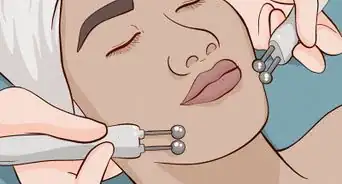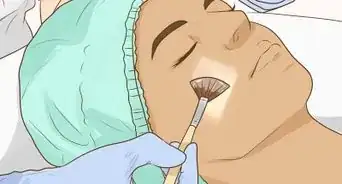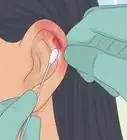This article was co-authored by Mohiba Tareen, MD. Mohiba Tareen is a board certified Dermatologist and the founder of Tareen Dermatology located in Roseville, Maplewood and Faribault, Minnesota. Dr. Tareen completed medical school at the University of Michigan in Ann Arbor, where she was inducted into the prestigious Alpha Omega Alpha honor society. While a dermatology resident at Columbia University in New York City, she won the Conrad Stritzler award of the New York Dermatologic Society and was published in The New England Journal of Medicine. Dr. Tareen then completed a procedural fellowship which focused on dermatologic surgery, laser, and cosmetic dermatology.
There are 21 references cited in this article, which can be found at the bottom of the page.
This article has been viewed 29,167 times.
Your skin is not just an external covering; it's a large organ responsible for protecting your body from germs, balancing body temperature, making vitamin D and helping to regulate body fluids. It's also a reflection of your health and lifestyle. Protecting your skin from sun damage, infection, dehydration, allergic rashes and premature aging is important for looking good and staying healthy.
Steps
Protecting Your Skin Through Lifestyle Changes
-
1Reduce excessive sun exposure. Sun exposure is healthy in moderation, but too much increases the risk of sunburn, skin cancer and premature aging (lots of wrinkles and sun spots).[1] Protecting yourself from sun exposure is especially important during summer because that's when the harmful ultraviolet (UV) radiation is most intense.
- Don't avoid the sun too often out of fear, but try to limit your direct exposure, especially during the summer between 10am and 3pm.[2]
- In most climates, you can get your daily requirement of vitamin D by spending just three to eight minutes in the sun with your arms and legs exposed.[3] If you have lighter skin, you don't have to stay out as long as darker-skinned people. Don't stay out long enough for your skin to turn pink.
- If you have to be outside longer, cover up with a hat, sunglasses, lip balm containing sunscreen, and long sleeved clothes. Don't forget to apply a broad-spectrum sunscreen with an SPF of at least 30, and stay in the shade as much as possible.
- If you get a bit of sunburn on your skin, apply some aloe vera gel — it's great for soothing inflamed skin and promoting healing.
-
2Wash regularly, but not excessively. Washing your skin and keeping it clean of dirt, debris, bacteria and other microbes is important for protecting it, but too much washing/scrubbing can damage sensitive skin. Aim for once daily and use gentle, hypoallergenic soap on your skin. Don't bathe or shower in hot water, because it can scald skin and draw moisture out of it, leading to dehydration and flaky skin.[4]
- Too much bathing removes all the natural oils from your skin. These oils are needed for protection from microbes and to keep moisture in.
- Gently pat your skin dry with a soft towel instead of rubbing it aggressively.
- Exfoliate your skin on a regular basis also (weekly) with a mildly abrasive cleanser and an exfoliating pad, such as a loofah. Exfoliating removes dead skin (allowing the living cells underneath to breathe) and helps to prevent wrinkles.
Advertisement -
3Stop smoking cigarettes. Smoking has a long list of health hazards, including lung cancer and stroke, but it also negatively impacts your skin — particularly facial skin.[5] Yellow coloration, wrinkles and other signs of premature aging are common with cigarette smokers because they don't get enough oxygen from their lungs and they are putting more toxins into their bodies.[6] Thus, protect your skin and other organs by quitting smoking as soon as you can.
- Chewing tobacco is also very damaging to your body including your skin. Chew contributes to signs of premature aging by depriving the skin of oxygen due to its negative effect on the cardiovascular system and it is loaded with free radicals which damage cells.
- Pipe and cigar smoking offer the same — if not greater — risks as smoking cigarettes.[7]
-
4Reduce alcohol consumption. There is also a long list of health problems associated with alcohol abuse, particularly liver and pancreas cancers, but skin is susceptible to ethanol poisoning too.[8] Patchy, puffy skin with many burst blood vessels just below the skin's surface are common signs of alcohol abuse; therefore, either stop drinking alcoholic beverages or limit your consumption to no more than one per 24-hour period.
- Ethanol, the type of alcohol in beer, wine and spirits, is classified as a human carcinogen (cancer causing compound).
- Red wine is often touted as the most beneficial alcoholic beverage because it contains antioxidants (resveratrol), but overdoing it is not good for your health.
Protecting Your Skin Through Dietary Changes
-
1Eat nutritious foods. In addition to water, your skin also needs various nutrients to remain healthy. In general, you should eat food rich in antioxidants and limit your consumption of preservatives and artificial additives. Antioxidants are compounds found in fruits and veggies that prevent oxidation of "free radicals," which damage tissues such as the skin.[9] An overabundance of free radicals is linked to cancer and premature aging.
- Compounds known as strong antioxidants include vitamins C and E, beta-carotene, selenium, glutathione, co-enzyme Q10, lipoic acid, flavonoids and phenols.[10]
- Foods rich in antioxidants include virtually all dark-colored berries, strawberries, apples, dark cherries, artichokes, tomatoes, kidney beans, pinto beans and walnuts.
- Preservatives are found in almost all prepared foods that have long shelf lives at grocery stores. Avoid foods that have long lists of chemicals on their ingredient labels.
-
2Consider nutritional supplements. Another way of protecting your skin and making it healthy is from the inside out, which means putting all the necessary nutrients into your body. Eating nutritiously is obviously important for skin health (see above), but getting enough of specific vitamins, minerals and fats can be a challenge. As such, consider supplementing with biotin (vitamin B7), vitamin C, vitamin E, selenium and omega-3 fatty acids to protect your skin.[11]
- Biotin and other B-vitamins can help reduce skin dryness and flakiness.
- Vitamin C is needed to make collagen, the elastic fibers in skin that allow it to stretch without ripping and it is also an antioxidant.
- Omega-3 fatty acids have anti-inflammatory properties and allow your skin to produce its naturally protective oils.
- Speak with your doctor or pharmacist before starting a supplement. They can react with other medications you may be taking.
-
3Keep well-hydrated. Keeping well-hydrated is also important for protecting skin and making it look healthy. Hydrated skin can better protect you from sunburn and help regulate body temperature more efficiently. At least eight 8-ounce glasses (2 liters) of water is recommended daily, although you might need more if you spend time outside when it's hot and humid.[12] Some fresh squeezed fruit and/or veggie juice is healthy also and provides essential vitamins and minerals.
- Avoid drinks with caffeine because they can actually dehydrate you in the long run. Coffee, black tea, soda pop (especially colas) and energy drinks all contain caffeine.
- Bathing (especially in a bathtub) can be a source of hydration as long as the water is not too hot.
Using Helpful Skin Products to Provide Protection
-
1Apply sunscreen regularly. Some form of sunscreen (the more natural the better) should be worn on your skin if you intend on spending significant time in the sun — it protects your skin from harmful UV radiation reduces your risk of skin cancers.[13] Everyone defines "significant time" differently, but anything over 30 minutes in the sun needs protection of some sort, especially children who are more susceptible to burning.
- Everyone should use a broad-spectrum sunscreen with an SPF of at least 30 and apply it every few hours while outdoors.[14] Some newer sunscreens have SPFs of 45 or higher.
- You should also reapply after you've been in the water or if you've been sweating.
- The more sunburns you experience in your life, particularly while younger, the higher the risk of getting skin cancer in the future.
- Although sunscreen blocks UV radiation, many products contain chemicals that increase your risk of skin cancer, so the advantages of always using it are not cut and dry.[15]
- Sunscreen also blocks the production of vitamin D in your skin, which is needed for calcium absorption, strong bones and mood regulation.
-
2Use quality moisturizers. Keeping your skin moisturized will protect it from the outside elements and help to prevent dryness, flaking, irritation, itchiness and redness. After you jump out of the tub or shower, immediately apply generous amounts of moisturizing cream or lotion (such as Eucerin or Aquaphor) to your skin to seal in the moisture.[16] Reapply moisturizer later in the day, especially if you have a sunburn or notice that your skin is dry and flaky. Have a skin care routine for your particular type of skin.
- If you have oily skin, use a gentle purifying wash, a non-oily moisturizer, and a dry sunscreen. Look for moisturizers that are lotions, not creams, as these will contain more water.
- If your skin is dry, use a hydrating wash and moisturizer, as well as a creamy sunscreen. Look for a moisturizer that is richer — a cream or milk — as the oil in these will hydrate your skin and shouldn't cause you to break out.
- If your skin is in between the two extremes, use a gentle wash, an ordinary moisturizer and sunscreen.
- Consider natural moisturizers that contain vitamins C and E, aloe vera, cucumber extract and/or calendula — all are great for protecting and repairing skin.[17]
- Don't use butter, petroleum jelly (Vaseline) or other oil-based products regularly as moisturizers — they block skin pores and prevent heat and sweat from escaping.[18]
-
3Wear insect repellent. Protecting your skin from bug bites is also important, especially species that can transmit serious diseases, such as mosquitoes and ticks.[19] In addition to possibly wearing long pants, long shirts, gloves and hats with special netting, apply insect repellent to your skin when you're outdoors — especially if you're near forests or standing bodies of water. Most repellents last for up to six hours and some are water resistant.
- If you are also wearing sunscreen apply the sunscreen first, let it dry, then apply the insect repellent.
- For protection against most insects and some spiders, use a repellent that contains 20% or more DEET (Off!, Cutter, Sawyer, Ultrathon).
Protecting Your Skin From Common Hazards
-
1Avoid allergens. Skin is also susceptible to various irritants and allergens — any compound that triggers an allergic reaction, also called contact dermatitis. The skin produces lots of histamine in response to an allergen, which leads to inflammation, redness and sometimes hives (swollen and itchy welts). Common irritants include: nickel (found in costume jewelry), various fragrances, cosmetics, some sunscreens and rubber ingredients (especially latex).[20]
- Instead of wearing a watch made of cheap metal that contains nickel, wear a leather or rubber band instead.
- If much of your skin is irritated and itchy, particularly your legs, buttocks and upper arms, switch to a more natural laundry detergent and see if that helps.
- If exposed to allergens, wash the affected area gently with mild hypoallergenic soap.
- Occupations that trigger the most contact dermatitis include dental professionals, healthcare workers, florists, landscapers, hairdressers and machinists.
-
2Get a shower filter. Another common skin irritant you should consider protecting yourself from is chlorine, which is added to water as a disinfectant. Chlorine can cause severe dermatitis in some people (itchy red hives and bumps), but all people react negatively to it at high enough doses or concentrations.[21] At higher doses, chlorine can really dry the skin, cause flakiness and give you mild chemical burns.
- Buy a shower filter for your shower to reduce your exposure to chlorine. There are different types that use different compounds for filtration.
- Take shorter and less frequent showers.
- Take cooler showers to avoid exposure to chlorine gas present in steam.
- Chlorine evaporates pretty quickly from hot water, so draw a really hot bath and let it cool down for 15 minutes or so to reduce the chlorine concentration.
-
3Prevent frostbite by bundling up. Skin is also susceptible to frostbite during cold weather. Frostbite is caused by freezing of the skin, which eventually leads to tissue death.[22] With frostbite, your skin becomes very cold and red-colored, then it becomes numb, hard and pale. It's most common in fingers, toes, nose, ears, cheeks and chin. As such, always keep these body parts covered when in cold weather.
- Exposed skin in cold, windy and damp weather is most vulnerable to frostbite.
- Dress in several layers of loose, warm clothing that's windproof and waterproof. The layers insulate your body parts from the cold.[23]
- Wear mittens instead of gloves as they provide better protection and create more warmth for your fingers.
- Always wear a hat or toque that fully covers your ears when in cold, windy weather. Heavy woolen or windproof materials (Gortex) provide great protection.
Expert Q&A
-
QuestionHow can I get healthy skin?
 Mohiba Tareen, MDMohiba Tareen is a board certified Dermatologist and the founder of Tareen Dermatology located in Roseville, Maplewood and Faribault, Minnesota. Dr. Tareen completed medical school at the University of Michigan in Ann Arbor, where she was inducted into the prestigious Alpha Omega Alpha honor society. While a dermatology resident at Columbia University in New York City, she won the Conrad Stritzler award of the New York Dermatologic Society and was published in The New England Journal of Medicine. Dr. Tareen then completed a procedural fellowship which focused on dermatologic surgery, laser, and cosmetic dermatology.
Mohiba Tareen, MDMohiba Tareen is a board certified Dermatologist and the founder of Tareen Dermatology located in Roseville, Maplewood and Faribault, Minnesota. Dr. Tareen completed medical school at the University of Michigan in Ann Arbor, where she was inducted into the prestigious Alpha Omega Alpha honor society. While a dermatology resident at Columbia University in New York City, she won the Conrad Stritzler award of the New York Dermatologic Society and was published in The New England Journal of Medicine. Dr. Tareen then completed a procedural fellowship which focused on dermatologic surgery, laser, and cosmetic dermatology.
FAAD Board Certified Dermatologist Foods that are high in omega-3 fatty acids are also great for your skin, like avocados, nuts, and fish.
Foods that are high in omega-3 fatty acids are also great for your skin, like avocados, nuts, and fish. -
QuestionWhat lifestyle changes can I make to protect my skin?
 Adarsh Vijay Mudgil, MDDr. Adarsh Vijay Mudgil is a board certified Dermatologist, Dermatopathologist, and the Owner of Mudgil Dermatology, a state-of-the-art dermatology practice based in New York, New York. As one of the few dermatologists in the area to achieve board certification in both dermatology and dermatopathology, Dr. Mudgil specializes in all aspects of medical, surgical, and cosmetic dermatology. He received his Bachelor's degree with Phi Beta Kappa honors from Emory University and earned his Doctor of Medicine (MD) with Alpha Omega Alpha honors from the Stony Brook University School of Medicine. In medical school, Dr. Mudgil was among a handful of students nationwide to receive a coveted Howard Hughes Medical Institute Fellowship and Scholarship. He then completed his residency in dermatology at the Mount Sinai Medical Center in Manhattan, where he served as chief resident. Additionally, Dr. Mudgil went on to complete a fellowship at the prestigious Ackerman Academy of Dermatopathology. He is a fellow of the American Academy of Dermatology, the American Society for Dermatologic Surgery, and the American Society of Dermatopathology. Dr. Mudgil is also a member of the Mount Sinai School of Medicine teaching faculty.
Adarsh Vijay Mudgil, MDDr. Adarsh Vijay Mudgil is a board certified Dermatologist, Dermatopathologist, and the Owner of Mudgil Dermatology, a state-of-the-art dermatology practice based in New York, New York. As one of the few dermatologists in the area to achieve board certification in both dermatology and dermatopathology, Dr. Mudgil specializes in all aspects of medical, surgical, and cosmetic dermatology. He received his Bachelor's degree with Phi Beta Kappa honors from Emory University and earned his Doctor of Medicine (MD) with Alpha Omega Alpha honors from the Stony Brook University School of Medicine. In medical school, Dr. Mudgil was among a handful of students nationwide to receive a coveted Howard Hughes Medical Institute Fellowship and Scholarship. He then completed his residency in dermatology at the Mount Sinai Medical Center in Manhattan, where he served as chief resident. Additionally, Dr. Mudgil went on to complete a fellowship at the prestigious Ackerman Academy of Dermatopathology. He is a fellow of the American Academy of Dermatology, the American Society for Dermatologic Surgery, and the American Society of Dermatopathology. Dr. Mudgil is also a member of the Mount Sinai School of Medicine teaching faculty.
Board Certified Dermatologist & Dermatopathologist Avoid excess sun, stop smoking, avoid stress, and get plenty of sleep every night. Eat a diet that's rich in antioxidants and exercise regularly. All of that is going to help your skin stay safe and healthy.
Avoid excess sun, stop smoking, avoid stress, and get plenty of sleep every night. Eat a diet that's rich in antioxidants and exercise regularly. All of that is going to help your skin stay safe and healthy.
References
- ↑ http://www.mayoclinic.org/healthy-lifestyle/adult-health/in-depth/skin-care/art-20048237
- ↑ https://my.clevelandclinic.org/health/healthy_living/hic_An_Overview_ofYour_Skin/hic_protecting_yourself_from_sun_damage
- ↑ http://www.ncbi.nlm.nih.gov/pubmed/20363523
- ↑ https://www.aad.org/public/skin-hair-nails/skin-care/face-washing-101
- ↑ http://www.cdc.gov/tobacco/data_statistics/fact_sheets/health_effects/effects_cig_smoking/
- ↑ http://www.mayoclinic.org/healthy-lifestyle/adult-health/in-depth/skin-care/art-20048237?pg=1
- ↑ http://www.webmd.com/smoking-cessation/effects-of-smoking-pipes-and-cigars
- ↑ http://www.cancer.gov/about-cancer/causes-prevention/risk/alcohol/alcohol-fact-sheet
- ↑ http://www.hsph.harvard.edu/nutritionsource/antioxidants/
- ↑ http://www.hsph.harvard.edu/nutritionsource/antioxidants/
- ↑ http://lpi.oregonstate.edu/mic/micronutrients-health/skin-health
- ↑ http://www.mayoclinic.org/healthy-lifestyle/nutrition-and-healthy-eating/in-depth/water/art-20044256
- ↑ http://www.mayoclinic.org/healthy-lifestyle/adult-health/in-depth/skin-care/art-20048237?pg=1
- ↑ https://my.clevelandclinic.org/health/healthy_living/hic_An_Overview_ofYour_Skin/hic_protecting_yourself_from_sun_damage
- ↑ http://www.huffingtonpost.ca/dr-mike-hart/does-sunscreen-cause-cancer_b_3280578.html
- ↑ http://www.mayoclinic.org/healthy-lifestyle/adult-health/in-depth/skin-care/art-20048237?pg=2
- ↑ http://www.skincancer.org/prevention/sunburn/five-ways-to-treat-a-sunburn
- ↑ https://www.nlm.nih.gov/medlineplus/ency/article/003227.htm
- ↑ http://wwwnc.cdc.gov/travel/page/avoid-bug-bites
- ↑ https://my.clevelandclinic.org/health/diseases_conditions/hic_Contact_Dermatitis
- ↑ http://acaai.org/allergies/types/allergy-myths/chlorine-allergy
- ↑ http://www.mayoclinic.org/diseases-conditions/frostbite/basics/definition/con-20034608
- ↑ http://www.mayoclinic.org/diseases-conditions/frostbite/basics/prevention/con-20034608
- ↑ http://www.cancer.org/cancer/cancercauses/sunanduvexposure/skin-cancer-facts
- ↑ http://www.mayoclinic.org/healthy-lifestyle/adult-health/in-depth/skin-care/art-20048237?pg=2
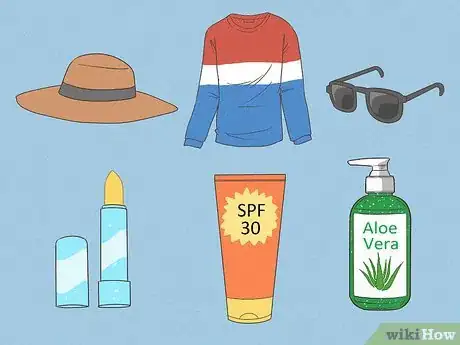
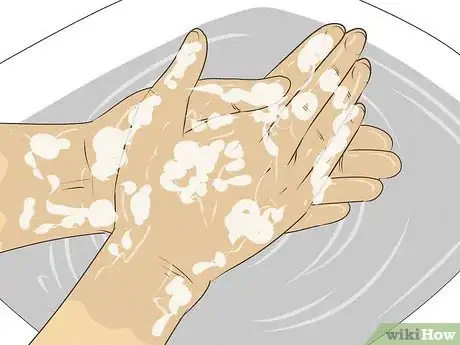
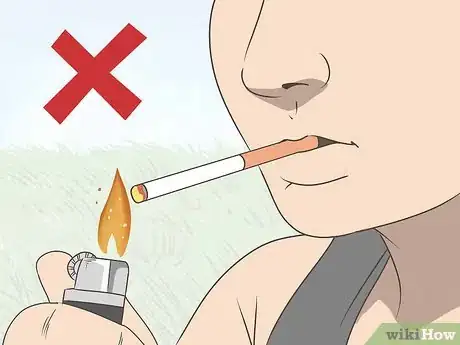
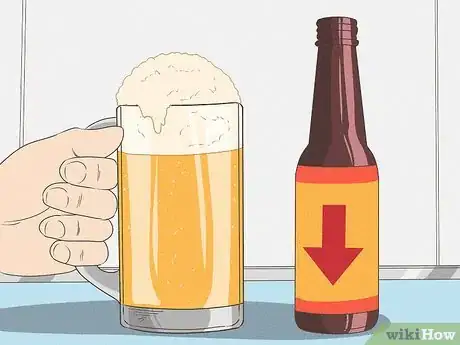

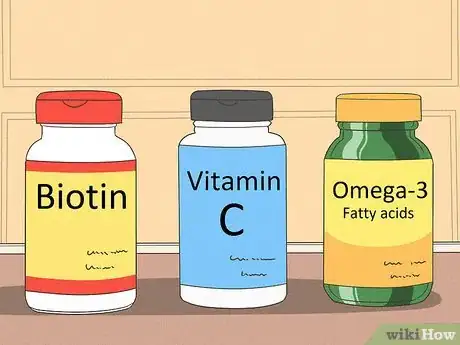
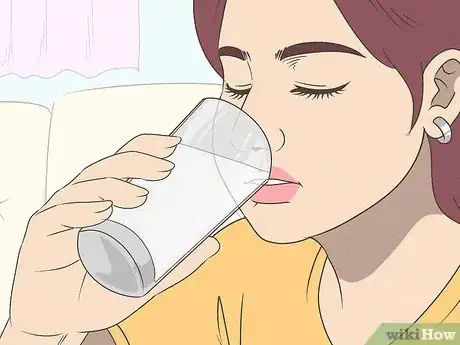
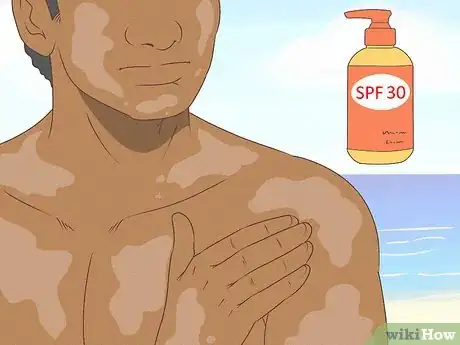
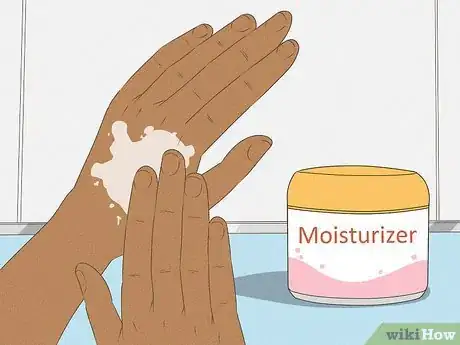
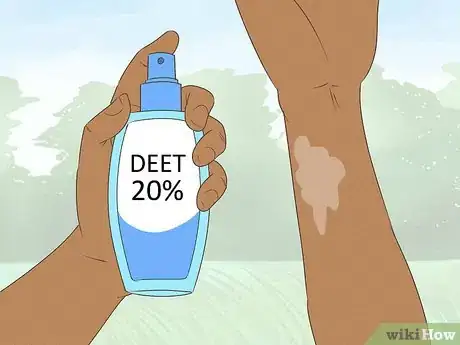
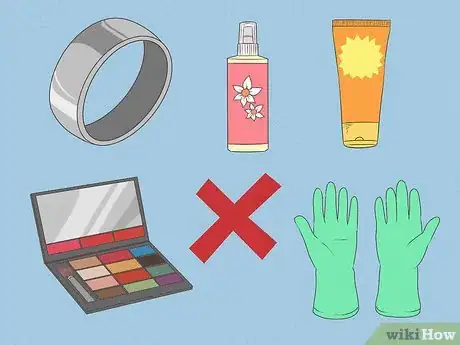




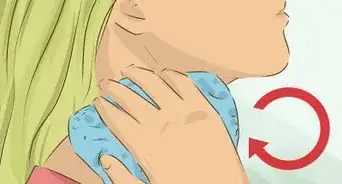
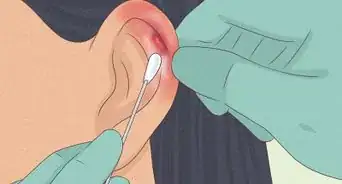



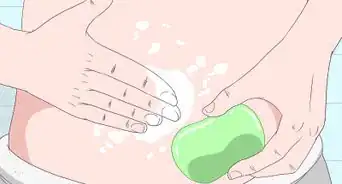
-Electric-Shock-Step-9.webp)

